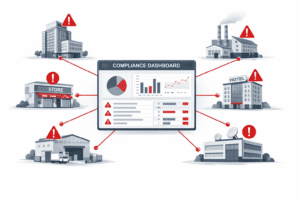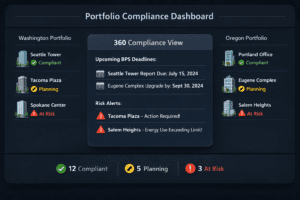I. Introduction
In the intricate tapestry of modern business, effective corporate governance is essential for ensuring that companies run smoothly, ethically, and in a manner conducive to long-term success. But what exactly is corporate governance, and why are benchmarking laws such a critical piece of the puzzle?
Corporate governance refers to the system of rules, practices, and processes by which a firm is directed and controlled. It involves balancing the interests of a company’s many stakeholders, such as shareholders, management, customers, suppliers, financiers, government, and the community. Since corporate governance essentially influences how a company operates, it also significantly impacts economic and financial stability on a broader scale.
Introducing benchmarking laws: these are regulations that either compel or encourage organizations to evaluate their performance against specific standards. The importance of integrating benchmarking laws into the fabric of corporate governance cannot be overstated. Doing so not only helps to ensure business performance aligns with best practices but also instills a culture of continuous improvement and adaptation, crucial in today’s fast-paced market environments.
II. Understanding Corporate Governance and Benchmarking Laws

Corporate governance encompasses a broad spectrum of aspects, from executive pay to internal controls, ethical business conduct to corporate disclosure. The role of governance in business is to facilitate effective, entrepreneurial, and prudent management that can deliver the long-term success of the company. It includes everything from setting corporate strategy, risk management, and corporate policies to ensuring transparency and fairness in the firm’s relationships with its stakeholders.
When it comes to benchmarking laws, they represent the legislative and regulatory frameworks that guide businesses in measuring and evaluating their performance against recognized standards. Benchmarking in business can take various forms, such as strategic benchmarking, process benchmarking, and financial benchmarking, each targeting different aspects of a company’s operations.
III. Need for Benchmarking Laws in Corporate Governance
The integration of benchmarking into corporate governance stems from the compelling need to maintain a competitive edge and foster a culture of transparency and efficiency. Instances where companies have sidestepped such practices serve as cautionary tales of significant corporate governance failures. For example, the financial collapse of Enron highlighted the disastrous consequences of poor corporate governance and lack of adherence to benchmarking best practices.
Conversely, the implementation of benchmarking laws can bring about numerous benefits. It can lead to improved financial performance, enhanced reputation, and better risk management. Moreover, benchmarking against regulatory standards helps ensure compliance and can reduce the likelihood of legal sanctions or fines.
IV. How to Use Benchmarking Laws to Improve Corporate Governance
To effectively integrate benchmarking laws into corporate governance, an organization must follow a structured approach:
- Establish Benchmarking Criteria: Identify which performance metrics are essential for the business and which benchmarks or standards are relevant.
- Collect Data: Gather internal data and, if possible, acquire comparative data from competitors or industry leaders.
- Analyze Results: Compare the company’s performance against the benchmarks and analyze the gaps.
- Develop Improvement Plans: Based on the analysis, develop plans to address areas of underperformance.
- Implement Changes: Roll out the necessary changes in processes, policies, and strategies to meet the benchmarking standards.
- Monitor and Review: Regularly review performance against benchmarks to ensure continuous improvement.
A practical example of utilizing benchmarking laws to govern a corporation effectively is the implementation of environmental compliance standards. By benchmarking their environmental impact against legal requirements and industry best practices, companies can not only fulfill their legal obligations but also enhance their brand reputation and stakeholder confidence.
V. Challenges in Implementing Benchmarking Laws
While the benefits are clear, the road to successful benchmarking can be fraught with challenges. Organizations may encounter difficulties such as resistance to change from within, the complexity of collecting and analyzing relevant data, and ensuring consistency across different jurisdictions, especially for multinational corporations.
One of the keys to overcoming these challenges is cultivating an organizational culture that values transparency, continuous improvement, and compliance. Furthermore, leveraging technology for data analysis and management can streamline the benchmarking process.
VI. The Future of Corporate Governance and Benchmarking Laws

The landscape of corporate governance is dynamically evolving, and benchmarking laws are becoming increasingly integral to this evolution. As stakeholders demand more accountability and transparency, the regulatory environment is likely to become more stringent.
Future advancements in benchmarking laws will likely introduce more sophisticated metrics and require companies to have even more refined systems for data management and analysis. Firms that stay committed to adapting to these evolving standards will be better equipped to navigate the intricacies of corporate governance in the future.
VII. Conclusion
Benchmarking laws are indispensable tools in the quest for excellent corporate governance. They provide a tangible framework for measuring and improving business performance, ensuring compliance, and fostering an environment of accountability. As corporations strive to align their operations with these laws, they unlock the potential for not just compliance but for excellence and leadership in their respective industries.
For corporations and their leaders, the message is clear: embrace benchmarking laws, not as mere legal necessities, but as opportunities to excel and set new standards of corporate governance and business integrity.
VertPro.com serves as a resourceful platform for property owners and managers seeking to enhance their buildings’ energy efficiency. The site offers a range of services, including Commercial Energy Audits, Benchmark Compliance consultancy, and a Construction Marketplace. At the heart of VertPro® is a suite of SaaS technology-based solutions designed to assist in navigating the complexities of Energy Benchmarking and Energy Audits/RCx Plus, while ensuring adherence to over 60 Energy Benchmarking and Energy Efficiency Laws across the country.
For those looking to improve their property’s energy usage and operational value, VertPro.com provides a diverse array of tools and information. The site aims to facilitate a better understanding of energy efficiency practices and legislation, helping building owners and property managers make informed decisions about their energy strategies while complying with all energy ordinances and laws.















